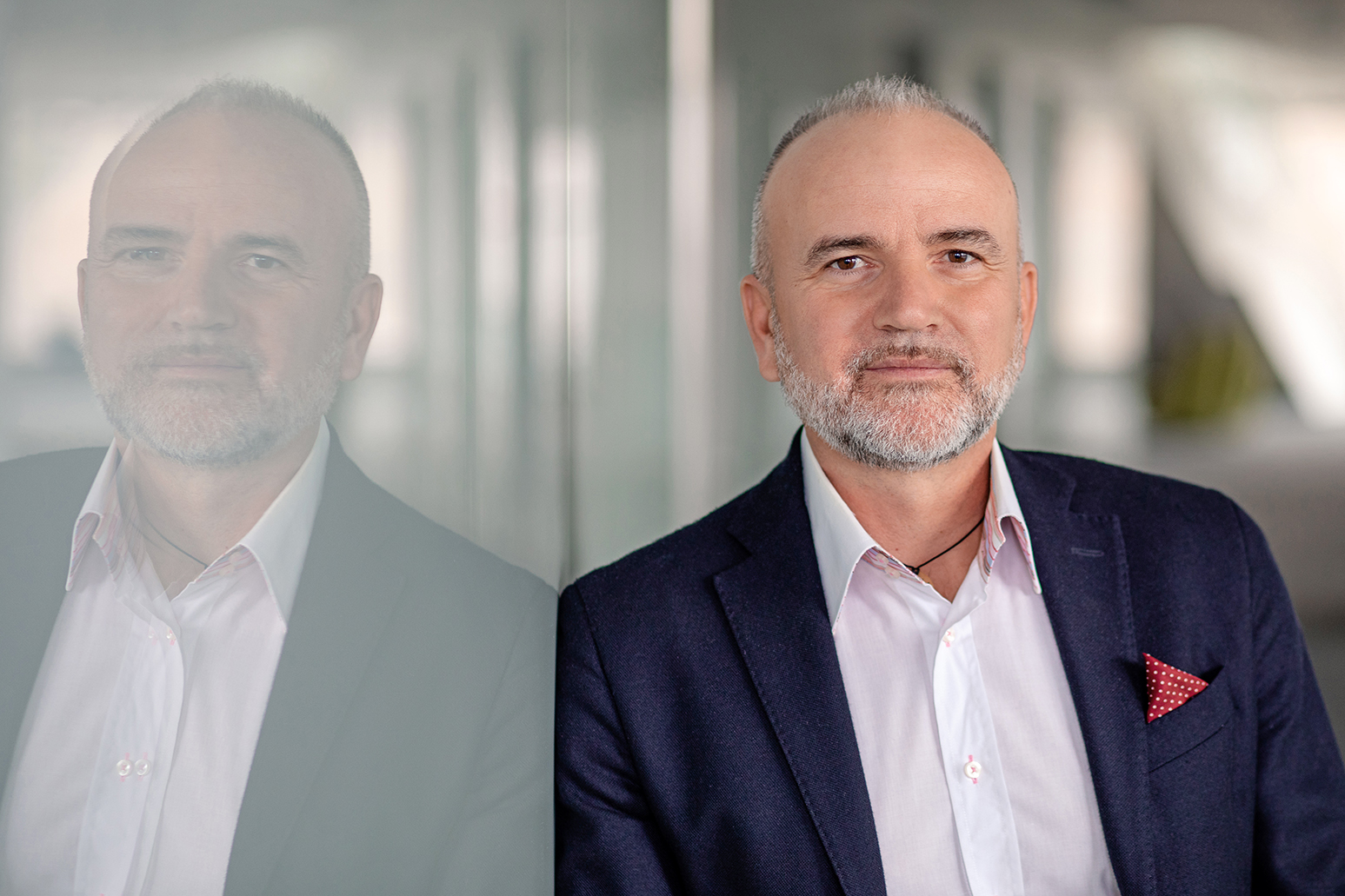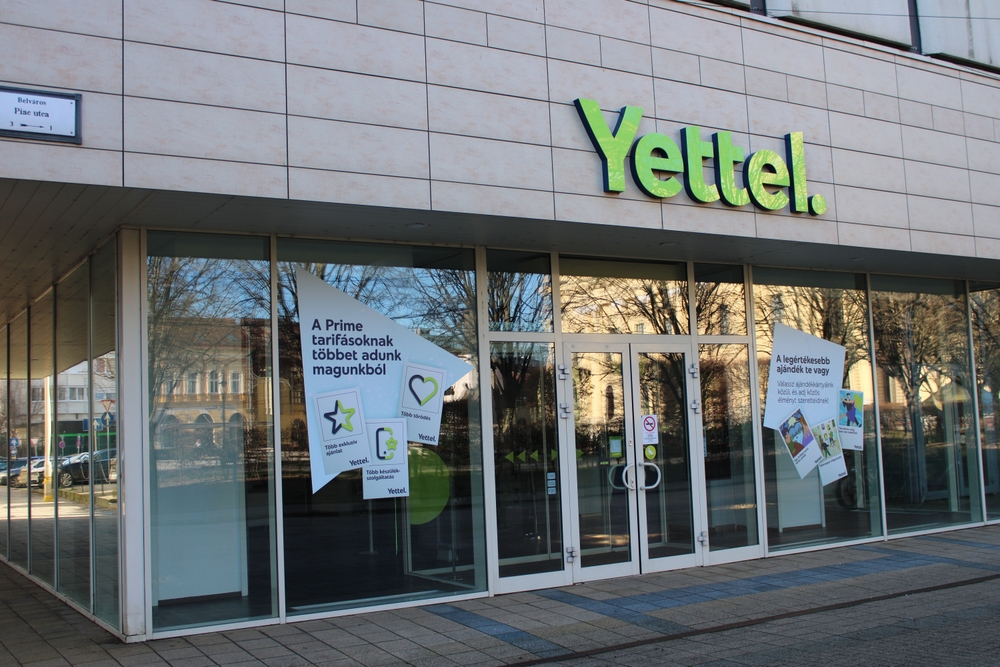Normalizing 5G Sentiment Opens way to Expanding Services

György Koller, chief technical officer of Yettel Hungary
Even as the Hungarian market is getting used to fifth-generation technology on the residential side of the business, the corporate landscape is readying itself for more complex use of machine-to-machine (M2M) and internet of things (IoT) applications maximizing the capabilities of the 5G mobile network. The Budapest Business Journal explores the market sentiment in telecommunications.
Following the initial hype around 5G, the sentiment relating to the technology is normalizing. Users are more rational in their approach to the technology’s capabilities both on the residential and corporate levels. So, where do telcos place their emphasis nowadays?
“We are focusing on three key areas of network development: 5G, machine-to-machine communication and the phasing out of 3G technology,” György Koller, chief technical officer of Yettel Hungary, told the BBJ.
As massive information campaigns have accompanied the advent of fifth-generation connectivity in recent years to help everyday users understand the power and potential of 5G, the technology is not foreign to most anymore. The time for mass adoption has arrived.
“We expect users to become increasingly open to adopting 5G technology both in the B2C [business to customer] and B2B [business to business] segments, which is also supported by our expanding 5G network and coverage,” Koller said.
Out With the Old
Phasing out the obsolete 3G connectivity, which has inherent speed and latency limitations, is welcome and valuable for the more ubiquitous technologies. Ridding 3G from a telco’s portfolio will release a spectrum that can be used by more state-of-the-art and efficient technologies for 4G and 5G services. User behavior warrants this change.
“The appetite for mobile internet is still growing, and we expect this to persist in the years to come in both the B2C and B2B segments. The trends have caught up with the peak network traffic of COVID times, leading to more balanced and steady growth,” Koller noted. Indeed, an increased inclination for data fueled an extraordinary expansion in the market.
“The past one or two years have seen a decade’s worth of growth in digitalization, which is certainly a positive side-effect of the pandemic,” he added.
As 5G surpasses previous technologies in four key capabilities — data speed, latency, simultaneous device support, and network slicing (creating multiple unique logical and virtualized networks) — mobile can now provide services that had only previously been available on fixed-line networks.
“With the emergence of autonomous 5G networks, the 1-2 millisecond latency promised by the new technology will create many new manufacturing opportunities. In this field, network slicing will be a useful feature, enabling businesses and plants to implement autonomous networks, offering all the benefits of 5G without being dependent on other external components of mobile networks as a whole,” Koller explained.
Essential Prerequisite
Fifth-generation connectivity is an essential prerequisite of ubiquitous technologies in development. Early in March, Vodafone Hungary announced it had launched a new global platform, enabling users to engage in what the telco describes as safe commercial activities.
The platform is called economy of things, EoT, and plugs into the systems of Mastercard and EnergyWeb, a nonprofit targeted at accelerating a low-carbon, customer-centric electricity system based on blockchain technology. EoT, Vodafone hopes, will help companies turn physical products into digital instruments that can compete in online markets.
“Vodafone’s newest EoT platform builds on our IoT platform and will enable the establishment of a commercial network,” said Mátyás Dobó, enterprise business unit director at Vodafone Hungary, according to a press release.
The platform promises to create a framework where everyday objects and devices can negotiate, purchase and sell services online, Dobó added.
Vodafone expects the new platform to help clients overcome their fear of distance when purchasing products and services online, as well as help them make conscious decisions about energy service providers based on the extent to which they use renewable energy sources.
Working Around the Clock
Two of Hungary’s three biggest telecommunications services providers have recently changed their working arrangements. Vodafone Hungary said in February that the organization would adopt agile working conditions and keep the current hybrid arrangement in place, while Magyar Telekom, the Hungarian sister of German giant Deutsche Telekom, has just announced it is piloting a four-day work week.
After a year of preparations, Vodafone Hungary is introducing agile working conditions while sticking to hybrid working. The telco believes that creativity, customer-centeredness, and speed are the most crucial factors determining business success and granting a company a market advantage.
In a press release, the telco defined “agile” as being fast to react and carrying a proactive mindset. The key to agile working, Vodafone says, is setting short-term, reasonable targets
“After some of our teams started adopting agile methodologies, in a bottom-up approach, digital teams and then the entire residential business has started reforming into agile working, until Vodafone in its entirety will find the agility that is working for them best,” said Balázs Révész, consumer business unit director and chief commercial officer at Vodafone Hungary.
Early in June, Magyar Telekom announced that it was launching a pilot project on the feasibility of a four-day work week. Between July and October, four teams will take part in this pilot. At the same time, Magyar Telekom will initiate a representative, country-wide survey to gauge employers’ and employees’ opinions on the approach.
“Experimentation is one of our core values; we are proactive and courageous in trying new things, which we believe may make our operations better, as well as help our colleagues develop and improve their life quality,” said Zsuzsanna Friedl, chief people officer at Magyar Telekom. She also underlined the importance of work-life balance and efficient, target-oriented working in light of the pilot.
This article was first published in the Budapest Business Journal print issue of June 17, 2022.
SUPPORT THE BUDAPEST BUSINESS JOURNAL
Producing journalism that is worthy of the name is a costly business. For 27 years, the publishers, editors and reporters of the Budapest Business Journal have striven to bring you business news that works, information that you can trust, that is factual, accurate and presented without fear or favor.
Newspaper organizations across the globe have struggled to find a business model that allows them to continue to excel, without compromising their ability to perform. Most recently, some have experimented with the idea of involving their most important stakeholders, their readers.
We would like to offer that same opportunity to our readers. We would like to invite you to help us deliver the quality business journalism you require. Hit our Support the BBJ button and you can choose the how much and how often you send us your contributions.









